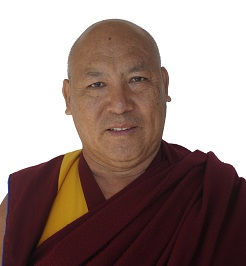
Geshe Lhakdor has a Geshe degree from Drepung Loseling Monastery and MPhil in Buddhist Philosophy from Delhi University. He served as His Holiness the Dalai Lama’s religious assistant and translator for 16 years and has travelled over 30 countries. He is presently Chairman of the Education Commission of the Central Tibetan Administration and Director of the Library of Tibetan Works and Archives, an important institute for Tibetan studies at Dharamsala.
Abstracts of the lectures:
Expansion of Buddhism in India and Asia
The followers of the Buddha were most enthusiastic in sharing his core teaching on compassion and wisdom. They were the first among the adherents of various religions not to remain content with the limited sphere of their temple or monastery. They spread far and wide. The purpose is to help alleviate sufferings of people, a big part of which is due to misperception of reality.
The contributions of Buddhism to Indian civilization
Buddhism contributed much to the religious and philosophical traditions with which it came into contact. There is no civilisation on which its effect has not been felt in some way or other. The empirical and experiential temper of Buddhist teaching appeals to the minds of modern man and women. Modern science has progressed by refusing to base itself on authority, religious or personal. It is no mean achievement of Buddhist thinkers to have questioned that belief centuries before the rise of modern science.